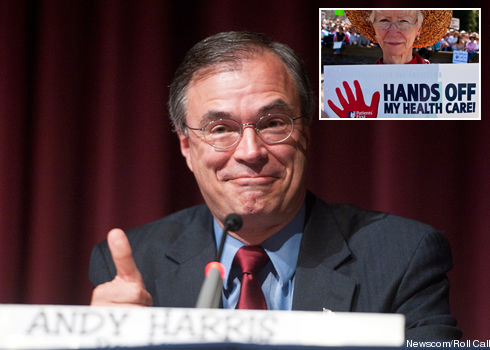Republicans and independents have decided that incoming members of Congress who ran against health care reform and still take their government-funded benefits are hypocrites. Democrats, not so much.
That’s one conclusion from a new national poll from Democratic firm PPP, which shows big majorities of GOP and independent voters saying the politicians who ran against the health care reform law should forgo the health care benefits they’re entitled to as employees of the federal government.
Just 28% of Republican respondents said that new anti-reform members should take their federal benefits, while a whopping 58% said they shouldn’t. Among independents — who voted for the GOP in big numbers on Nov. 2 — 56% say politicians who made health care repeal a cornerstone of their campaigns should deny themselves their government benefits. Only 27% said they should take them.
The split is much narrower among Democrats, who presumably support the health care law and the idea of government-assisted health care in larger numbers. Forty percent of Democrats said that politicians who ran against the health care law should take their government care anyway, while 46% said they should decline it.
Overall, the poll shows the electorate is not interested in paying for health care benefits for politicians who opposed government-funded health care on the campaign trail. Just 33% said anti-health care politicians should take their government benefits, while 53% said they should burn their government care cards.
The issue of anti-health care Republicans taking government benefits became a headline last week after Rep.-elect Andy Harris (R-MD) — a vocal anti-health care law physician — raised a stink because his government-sponsored benefits package didn’t kick in fast enough.
As PPP pollster Tom Jensen writes, the new poll suggests a way that Democrats could actually use government health care to their advantage, something that seemed impossible for them on the trail this fall.
“This is an issue where Democrats really have the opportunity to create tension between the newly elected officials and the Tea Partiers who put them there by highlighting the disconnect between the freshmen Republicans’ rhetoric and their actions,” Jensen writes. “Their base clearly expects them to act in a way consistent with their stated opposition to government provided health care…If Tea Party activists continue to get let down by the Republicans they elect it increases the possibility for them to shift their energies toward third party conservative candidacies in 2012.”
PPP surveyed 707 registered voters by automated phone call Nov. 19-21. The margin of error on the poll is 3.7%









